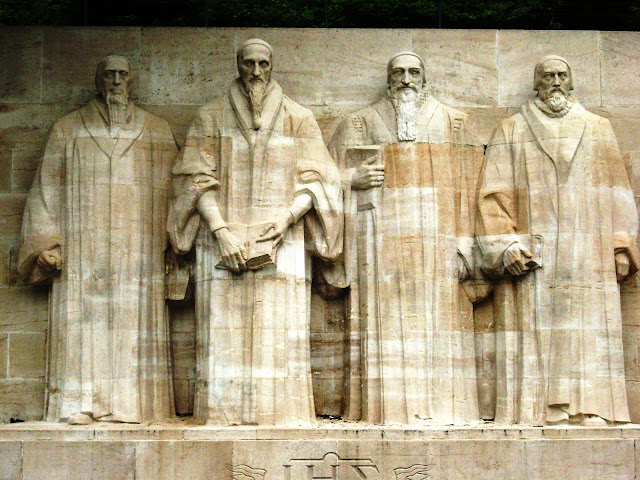Theological Roots and Moral Fruits of Reformation
By Dan Doriani - Posted at Place for Truth:
The leader of a major campus ministry recently said "If forty people approach a campus minister with an objection to Christianity, one worries about Bart Ehrman and his attacks on the authority and reliability of Scripture. The other thirty-nine have moral questions: Why does the Bible have a repressive sex ethic? Why is it silent about abuse of power? Why do evangelical churches support politicians who tolerate racism and misogyny? Why do so many pastors say "God wants you to be rich" and get rich pushing that message? In short, they ask, "Can I look to the church for moral direction?"
The Reformation era had similar questions and they fueled a desire for reform in an era when the church was society's dominant institution. Priests were everywhere and their flaws were clear. For example, Zurich had a population of 5,000 people and about 400 priests – over 20% of the adult male population. They lived beside the people, who saw that most of them had concubines and illegitimate children. At the time, popes like Alexander VI and Julius I had acknowledged children.
We rightly assent to the doctrinal elements of the Reformation, but it began as a moral movement and retained a moral flavor. The church was corrupt; it defrauded the poor to pay for its luxuries. This is a major element of Luther's protest against indulgences. In 1517, Johann Tetzel, an itinerant preacher, offered a special deal – a plenary indulgence, a complete remission of all penalties for sin, even covering purgatory. But indulgences were expensive. And they financed the lifestyle of a wealthy archbishop of Mainz and paid for the construction of St. Peter's Basilica in Rome.
Read more here.





Comments
Post a Comment
Please feel free to comment, but profanity, anti-Christian or argumentative comments will not be published. Thank you, ed.